Node.js 101: Decoding Node.js Frameworks, Exploring Emerging Patterns, and Predicting What's on the Horizon
It is not a secret that Node.js frameworks have been a genuine game-changer in the world of web development since its debut in 2009. This server-side runtime environment has enabled JavaScript, a language typically limited to browser-based activities, to break out of its shell and empower server-side functionalities. One of the cornerstones of this ecosystem is the multitude of Node.js frameworks that serve as invaluable tools for building scalable, robust, and feature-rich applications. Want to discover the true nature of frameworks for Node.js? Looking for top Node.js developers? Interested in the list of best Node.js frameworks for web development in 2025? Then, read on to dive into the mind-blowing universe of popular Node.js frameworks, innovative trends, best web development practices, and future predictions related to the ever-evolving landscape of frameworks for Node.js.
In short, today we will explore the following topics:
- What is Node.js and how does it work? Node.js is an open-source, cross-platform development tool that allows coders to run JavaScript code on the server side, outside a browser. How it works:
- Node.js transforms JavaScript into a machine-level code.
- It processes numerous requests at once without waiting.
- Lets you build fast, scalable, and data-rich applications for both web and mobile.
- Is Node.js still relevant in 2025? Yes, and one more time, yes! Let's quickly explore why:
- Perfect for real-time applications like chat apps, streaming platforms, and online collaboration tools.
- Cross-platform compatibility for web, mobile, and desktop apps.
- Strong community & ongoing updates keep it secure and future-ready.
- Actively adopted by startups and enterprises for APIs, microservices, and serverless solutions.
- Extensive toolkit with fresh frameworks and updates regularly coming.
- Effortless scalability and reusability via pre-built tools and libraries.
- What is the most popular Node.js framework in 2025? The undoubtful leader among the Node.js frameworks is an Express.js.
- What are the latest trends in Node.js?
- Serverless Architecture;
- GraphQL Microservices;
- Dockerization & Containerization;
- AI & Machine Learning Integration;
- Node.js now powers about 4.6-4.8% of all websites whose server-side technologies are known, a notable increase in market share this year.
- When should I NOT use Node.js?
- Node.js is not the best choice for CPU processing (like image processing or video rendering);
- If you want your solution to process request gradually but not at once;
- Not the perfect option for static, database-heavy applications.
Explore the Node.js landscapes from A to Z right below.
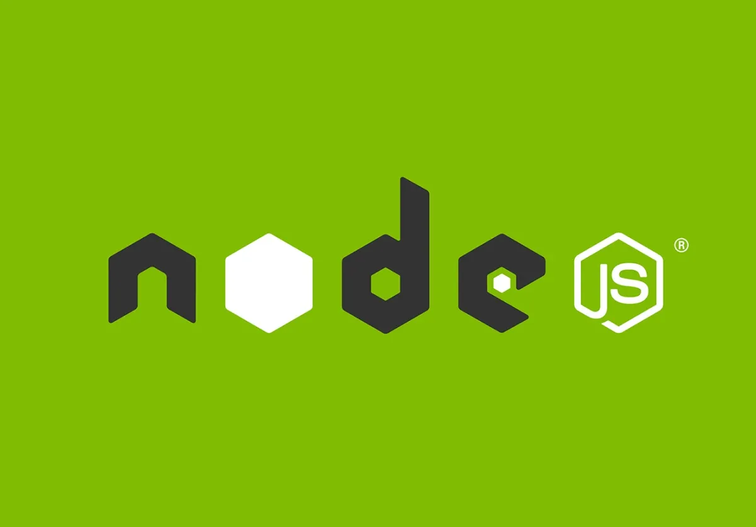
- Node.js Frameworks: Why Do We Need It in 2025 and Beyond?
- The Most Popular Node.js Frameworks in 2025
- Emerging Trends in Node.js Frameworks Landscape
- Best Node.js Development Practices
- Future of Node.js Frameworks
- Final Verdict on Node.js Frameworks, Trends, and Predictions
Node.js Frameworks: Why Do We Need It in 2025 and Beyond?
The concept of "frameworks" is quite controversial, and here is why: purists claim that using raw, vanilla code provides more control, while pragmatists value the efficiency and speed provided by Node.js frameworks. Let us solve this eternal controversy by providing several convincing reasons why Node.js frameworks are essential for modern web development:
Enhanced Reusability
Node.js frameworks typically offer pre-built modules and libraries, equipping developers with a unique collection of reusable code that can solve common issues without reinventing the wheel.
Efficient Development
Following the "convention over configuration" principle, Node.js frameworks reduce the number of challenging decisions a developer has to make, thereby accelerating development cycles.
Pre-Built Libraries
Thanks to a vast suite of utilities and libraries that can be efficiently utilized for routing, session storage, and database interaction, Node.js frameworks allow developers to focus on application logic rather than boilerplate code.
Next-Gen Scalability
The architectural groundwork laid by Node.js frameworks enables developers to scale applications horizontally or vertically in an easy and efficient manner.
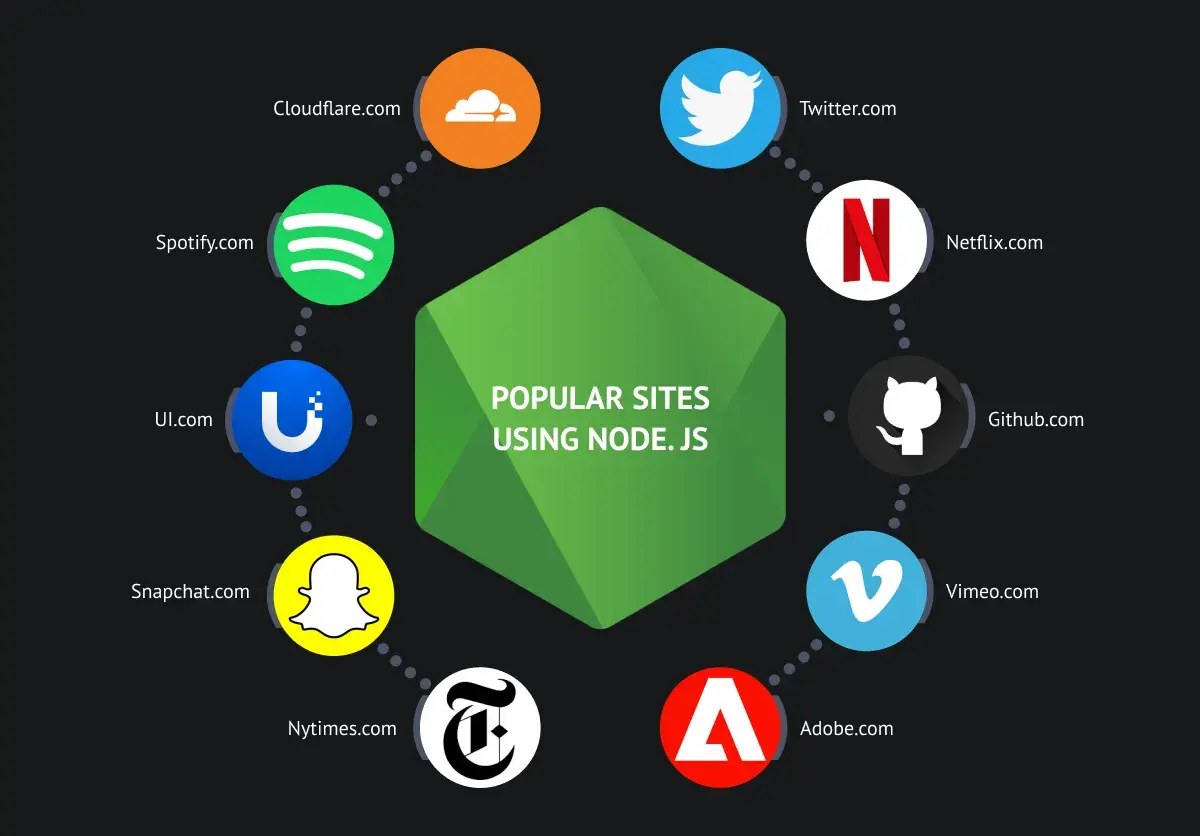
The Most Popular Node.js Frameworks in 2025
While Node.js itself can be described as the robust foundation of server-side development, Node.js frameworks enable developers to fast-track application development by providing reusable code and multiple features. Below, we have gathered the list of top Node.js frameworks worth your attention in 2025 and beyond.
The Winner: Express.js
Description & Unique Features:
Among all Node.js frameworks, this one stands out as the de facto standard for web application development. This minimalistic yet flexible framework allows Node.js developers to extend functionality thanks to middleware and plugins.
Sample Use Case:
Given its lightweight nature, Express.js is a perfect option for building RESTful APIs and single-page and multi-page applications. By way of illustration, companies like Uber and Twitter use Express in their tech stack. Express.js is also suitable for building isomorphic applications, where the server renders the initial page, and subsequent interactions happen on the client-side, often utilizing a library like React or Vue.js.
Middleware in Express.js:
One of the most compelling features of Express is its robust middleware architecture. Middleware consists of functions that have access to the request and response objects and the following middleware function in the application's request-response cycle. This design allows Node.js developers to perform tasks like parsing request bodies, adding headers, or even handling authentication.
Templating Engines:
Express.js also supports various templating engines like EJS, Pug, and Handlebars. Hence, it is suitable for rendering dynamic content on the server side before sending it to the client, a feature essential for SEO-friendly applications.
Community & Ecosystem:
Another essential feature is a vast and active community. The npm registry is packed with plugins and middleware built specifically for Express.js, which can further extend its capabilities.
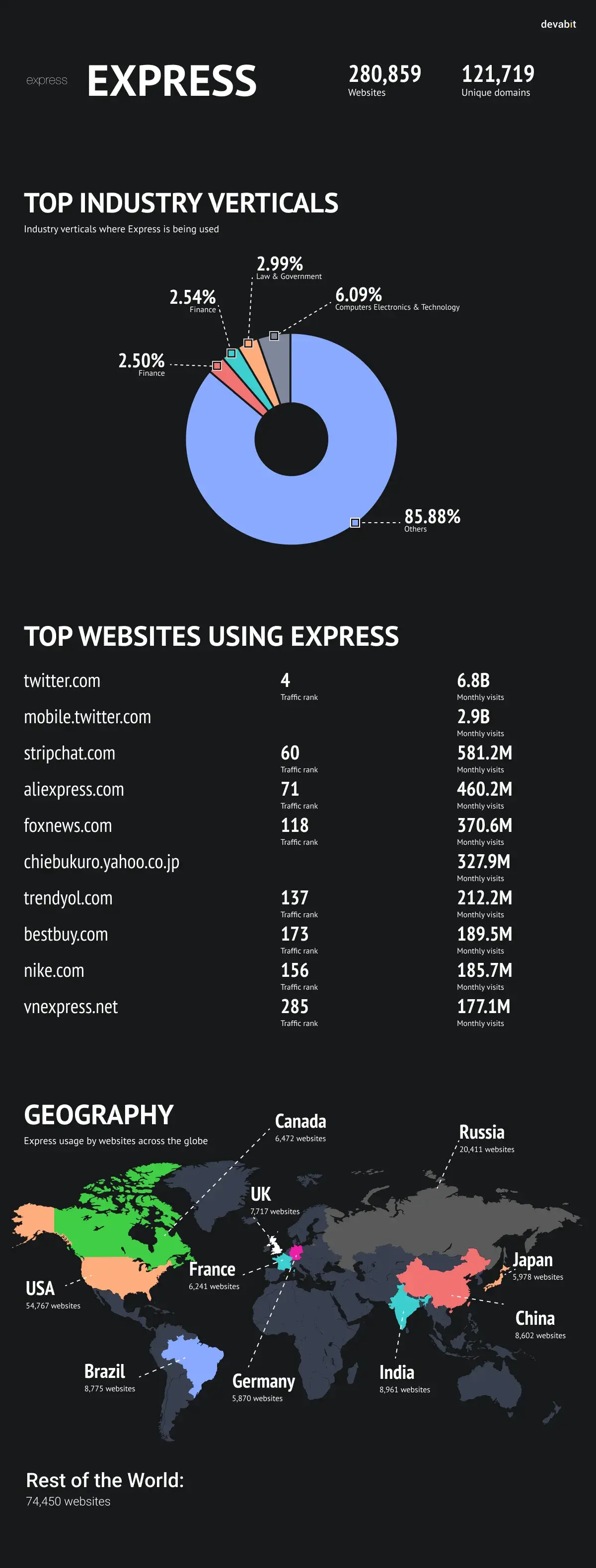
Silver Medal: Socket.io
Description & Unique Features:
Socket.io is a Node.js framework that enables real-time, bidirectional communication between web clients and servers. It mainly utilizes the WebSocket protocol to facilitate fast interactions but can fall back to other compatibility solutions if WebSockets are not an option.
Why Socket.io Over Native WebSockets:
While native WebSockets offer real-time communication, they lack some crucial features provided by Socket.io, such as broadcasting, middleware, and reconnection support.
Sample Use Case:
Socket.io is particularly useful in applications that require real-time features like chat applications, online gaming, collaborative coding environments, and real-time analytics dashboards.
Integration with Express.js:
Socket.io can seamlessly integrate with Express.js applications. An Express.js server often handles HTTP requests, while a Socket.io server handles WebSocket connections. Depending on the application's architecture, both can share the same HTTP port or operate on different ports.
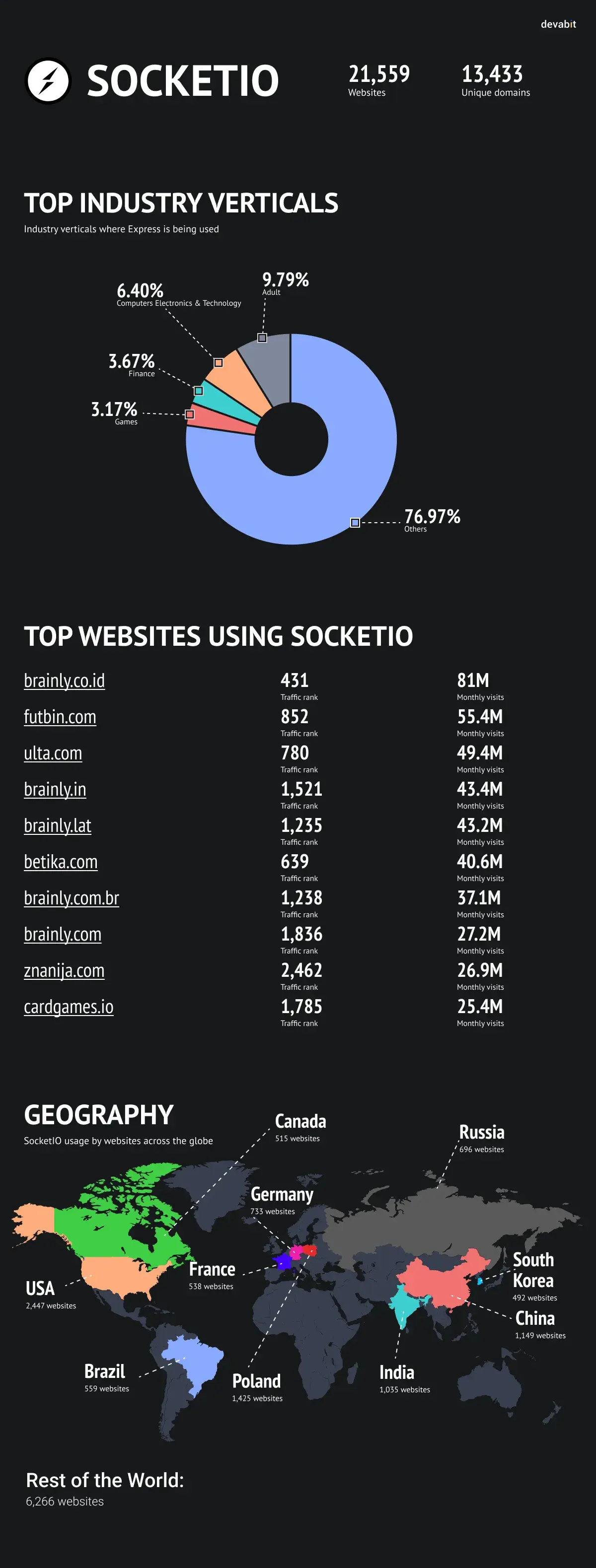
Consider other Node.js Frameworks: Nest.js
Description & Unique Features:
NestJS is a framework that has undergone significant improvements in recent years. Built with TypeScript and heavily inspired by Angular, it brings modern programming paradigms like decorators and modules.
Sample Use Case:
In a nutshell, NestJS is suitable for complex, enterprise-level applications, providing an out-of-the-box architecture for next-gen scalability and maintainability.
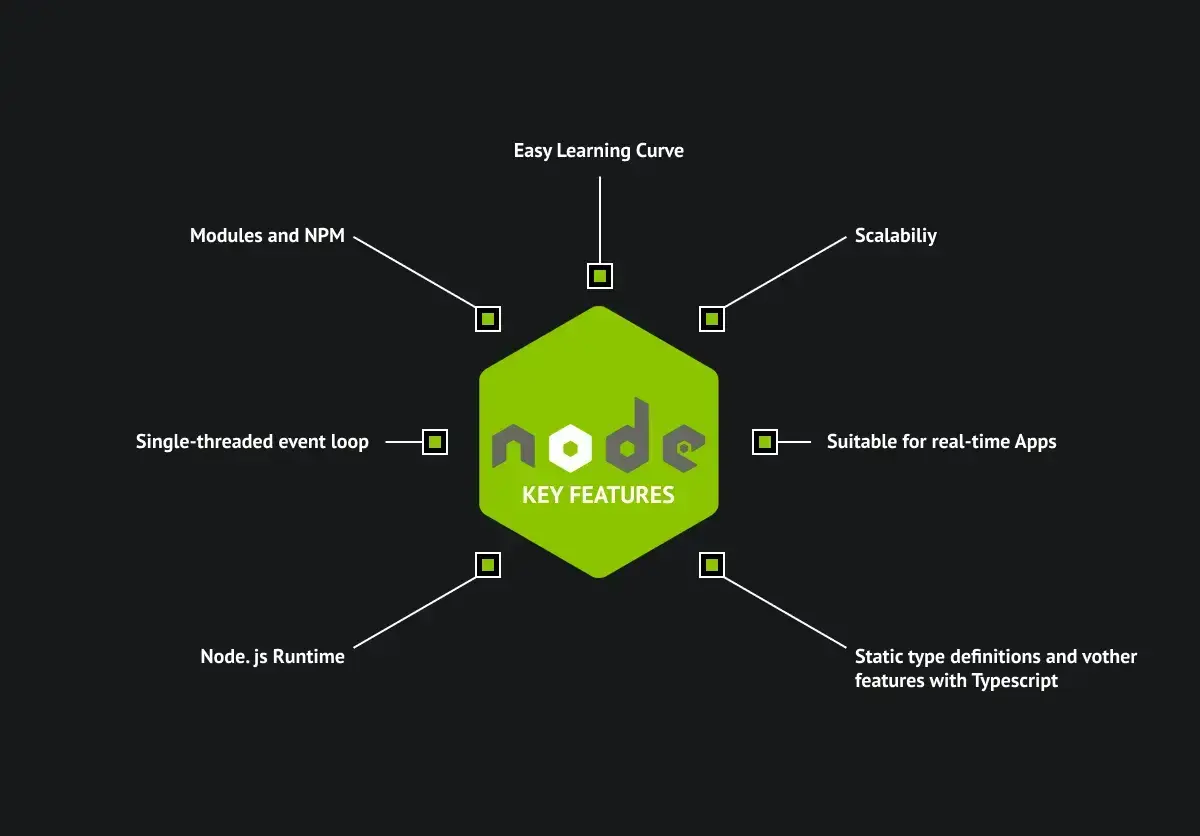
Consider other Node.js Frameworks: Koa.js
Description & Unique Features:
Developed by the creators of Express.js, Koa.js is more expressive and robust compared to its competitors. Since Koa employs ES6 generators, developers can easily manage callbacks and improve error-handling practices.
Sample Use Case:
Koa is an excellent choice for applications that require lower-level management of web functionalities, providing Node.js developers with more flexibility in terms of writing optimized and robust code.
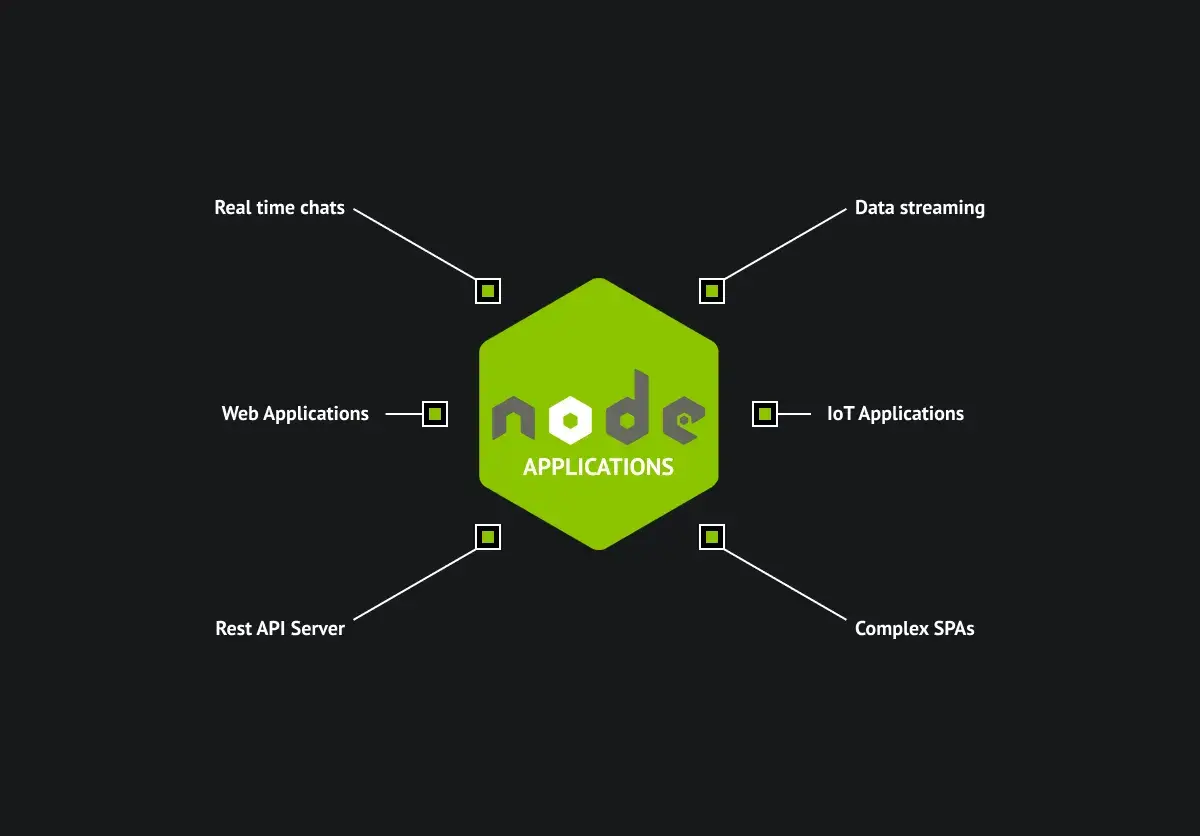
Other noteworthy Node.js frameworks include Fastify, known for its speed and low overhead, and Sails.js, a web framework with an MVC pattern similar to Ruby on Rails.
Interesting Statistics that Shape Node.js Frameworks Ecosystem in 2025
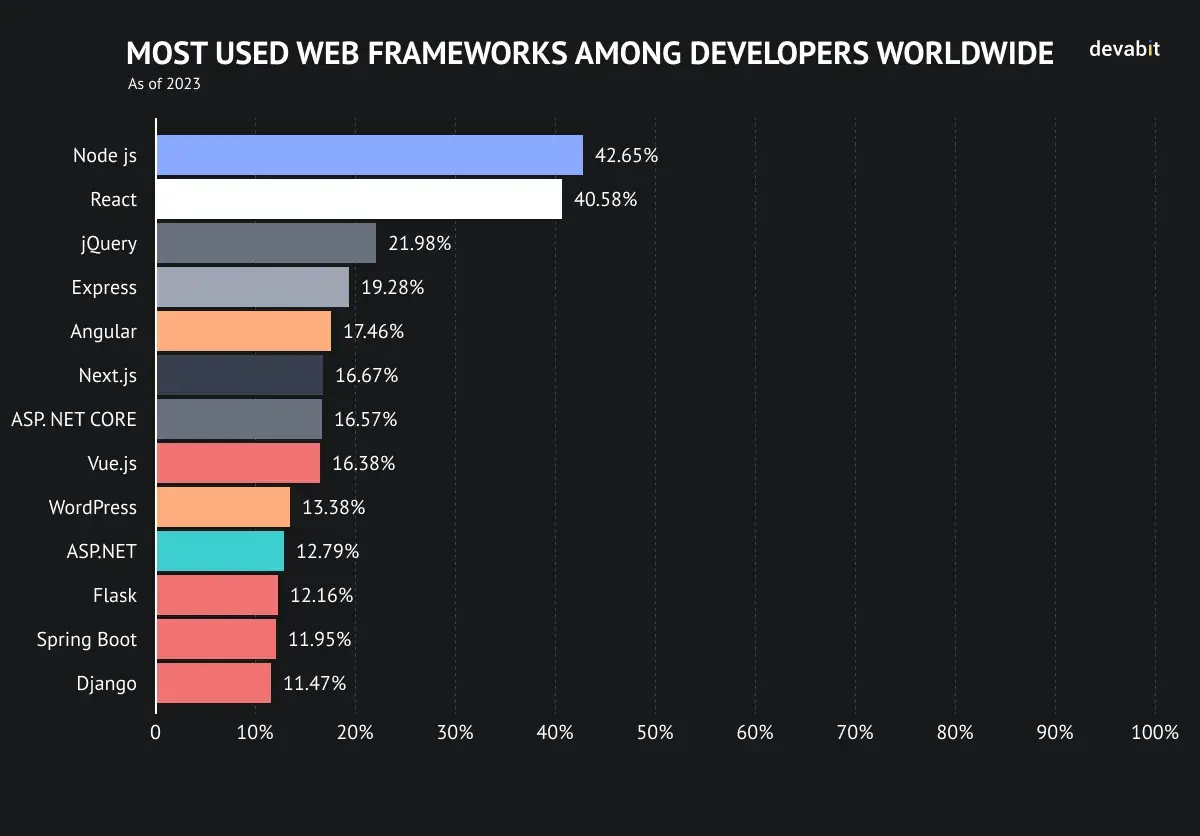
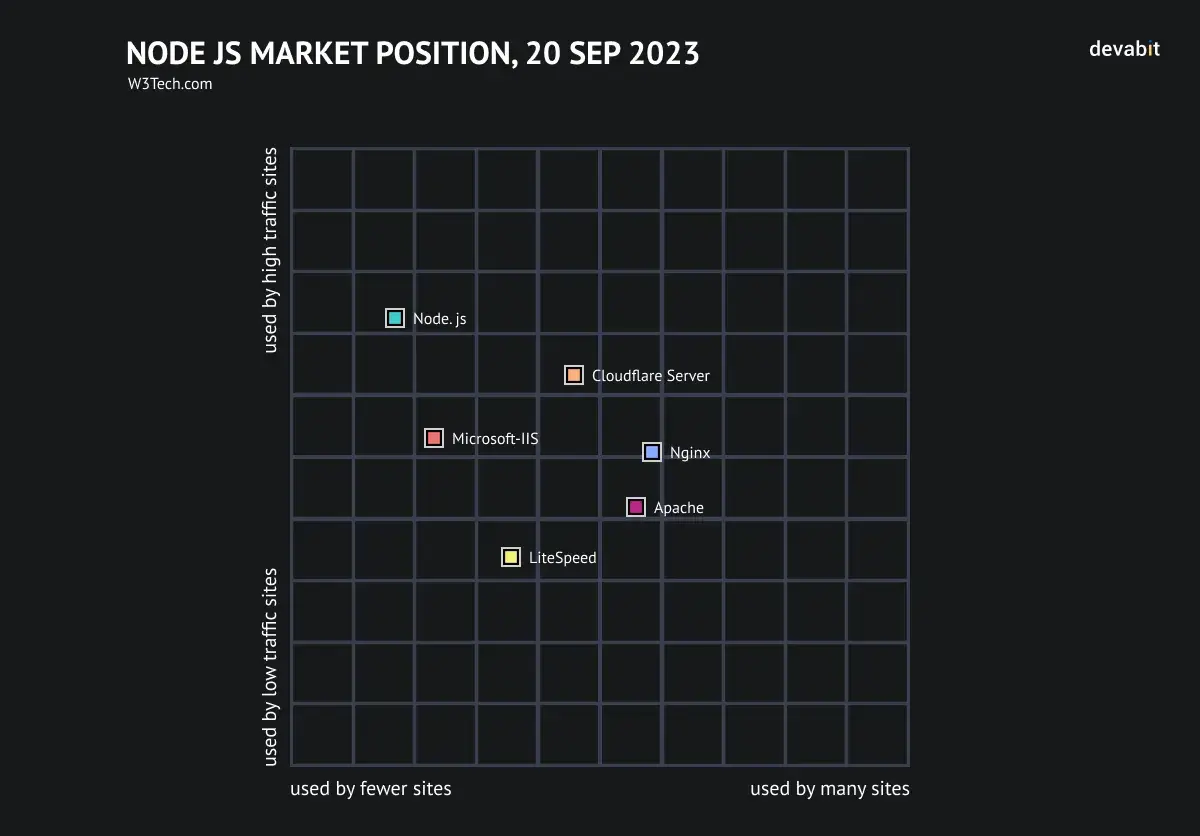
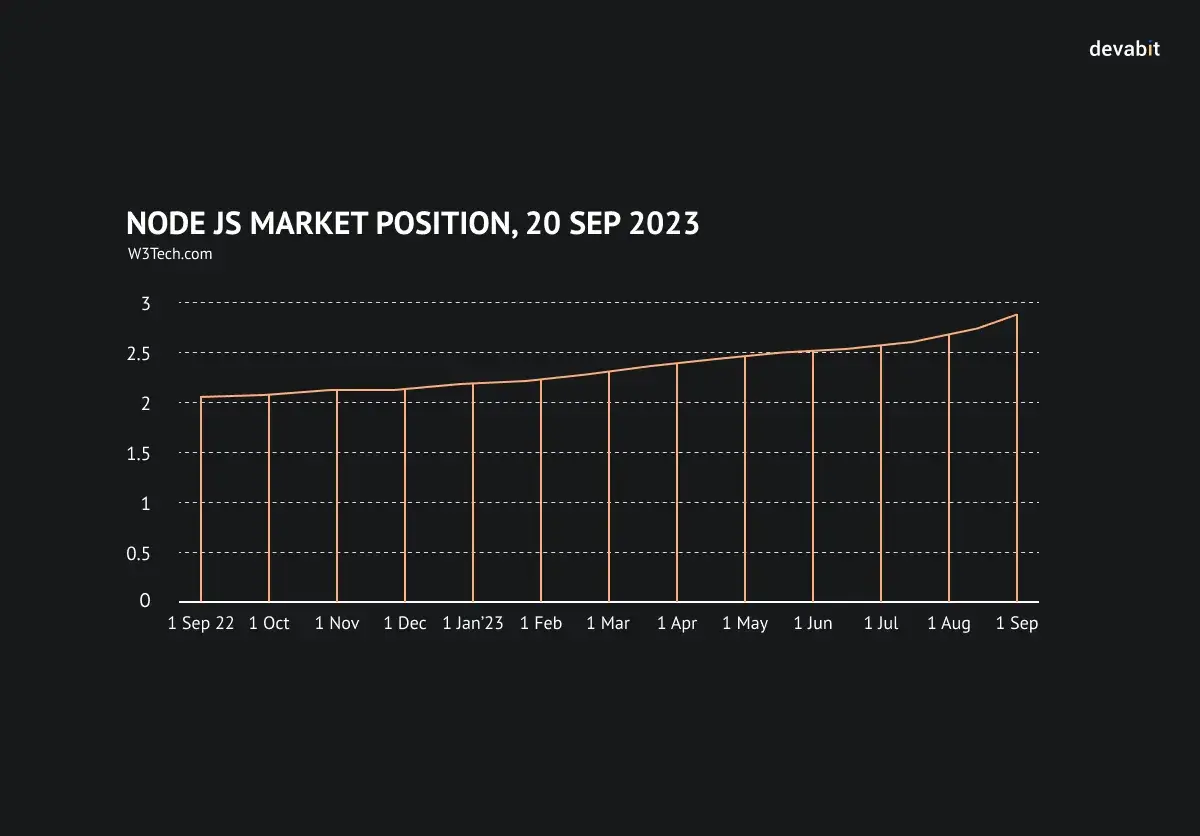
Emerging Trends in Node.js Frameworks Landscape
Serverless Architecture
Serverless architecture allows Node.js developers to build and run applications without worrying about the underlying infrastructure. Providers like AWS Lambda support frameworks for Node.js, making it even easier to deploy serverless applications.
GraphQL
GraphQL is a query language and runtime that provides more flexibility and efficiency than REST APIs. Many Node.js frameworks now have built-in support or plugins for GraphQL.
Microservices
The traditional monolithic architecture is gradually giving way to a microservices-based architecture. Node.js frameworks like NestJS and Express are adapting to this trend, delivering robust solutions for building microservices.
Dockerization & Containerization
The advent of containerization technologies like Docker has significantly impacted the way Node.js applications are developed, tested, and deployed. Containers encapsulate an application and its dependencies, ensuring it works across different computing environments.
AI & Machine Learning Integration
With machine learning libraries capable of running on JavaScript, frameworks for Node.js are also witnessing a trend where AI models are integrated into the backend. Therefore, this tendency allows for more intelligent data processing and user experience optimization.

Best Node.js Development Practices
Code Modularization
Modular code is easier to manage, test, and debug. Thus, modern web developers prefer to leverage the modular architecture provided by most Node.js frameworks.
Error Handling
There is no doubt that robust error-handling mechanisms are essential for any application. Frameworks like Express and Koa offer middleware specifically designed for error handling.
Logging & Monitoring
Another widespread practice related to web development lies in incorporating logging and monitoring solutions like Winston or Morgan to keep track of application performance and issues.
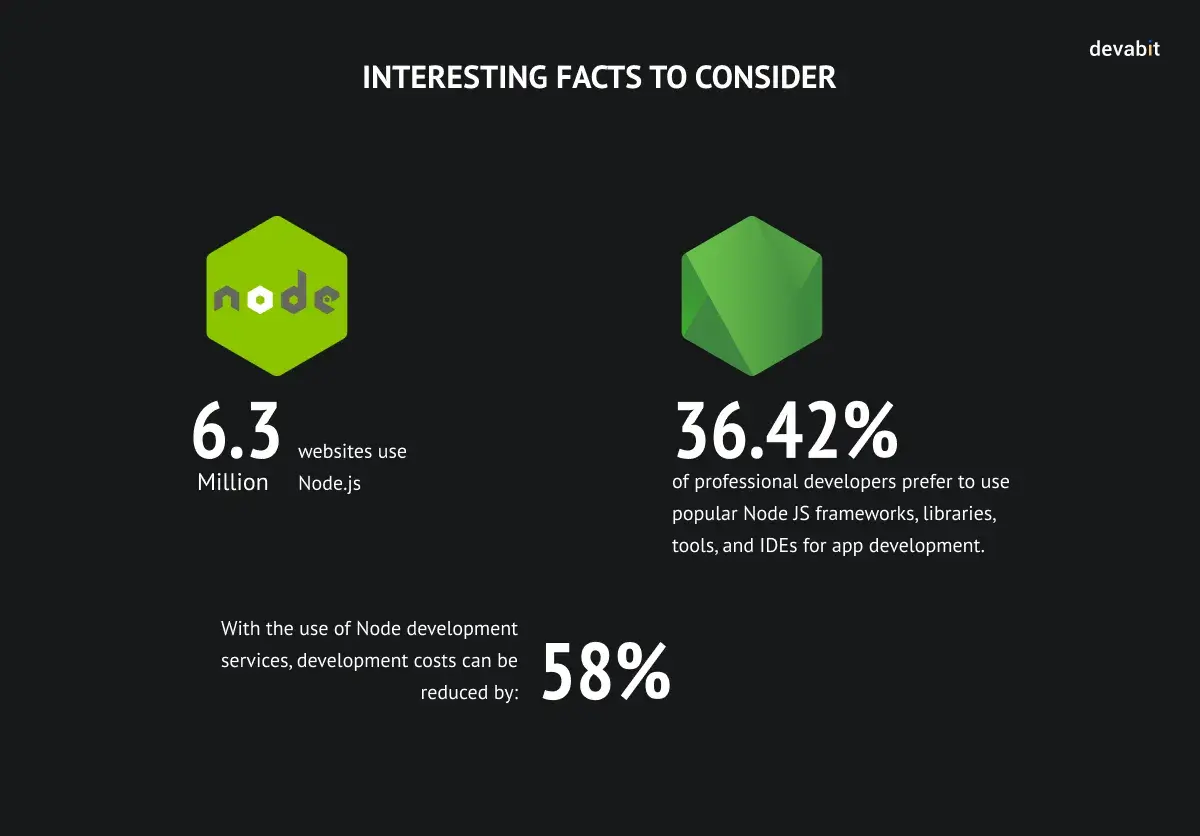
Future of Node.js Frameworks
Potential Updates
In the fast-paced web development environment, Node.js frameworks are continuously evolving. With the ECMAScript updates, we can expect even more functionalities to be incorporated into Node.js frameworks.
Upcoming Frameworks
The increasing interest in Deno, a runtime similar to Node.js but with enhanced security features, suggests we may soon see frameworks tailored for Deno.
Industry Adoption
Nowadays, Node.js frameworks are becoming more and more popular among startups and enterprise-level corporations.
Community Contributions
The Node.js community is rushing with activity, contributing to its ever-growing popularity. In addition to established corporations, independent Node.js developers are creating libraries, tools, and even unique Node.js frameworks that contribute to the current ecosystem.
Global Events & Meetups
Events like NodeConf and countless local meetups foster knowledge sharing and networking, accelerating innovation and adoption.

Next-Generation API Development with Frameworks for Node.js
Since creating RESTful APIs refers to one of the key uses of Node.js, it is essential to analyze the top frameworks for Node.js that programmers can use to build state-of-the-art web applications that impress users.
Frameworks for Node.js API Development: Express.js
Speaking of frameworks for Node.js, Express.js definitely takes the first place, even when it comes to creating APIs. It provides a minimalist, unopinionated approach to API development. Express.js has a large ecosystem of middleware and plugins, making it suitable for a wide range of use cases.
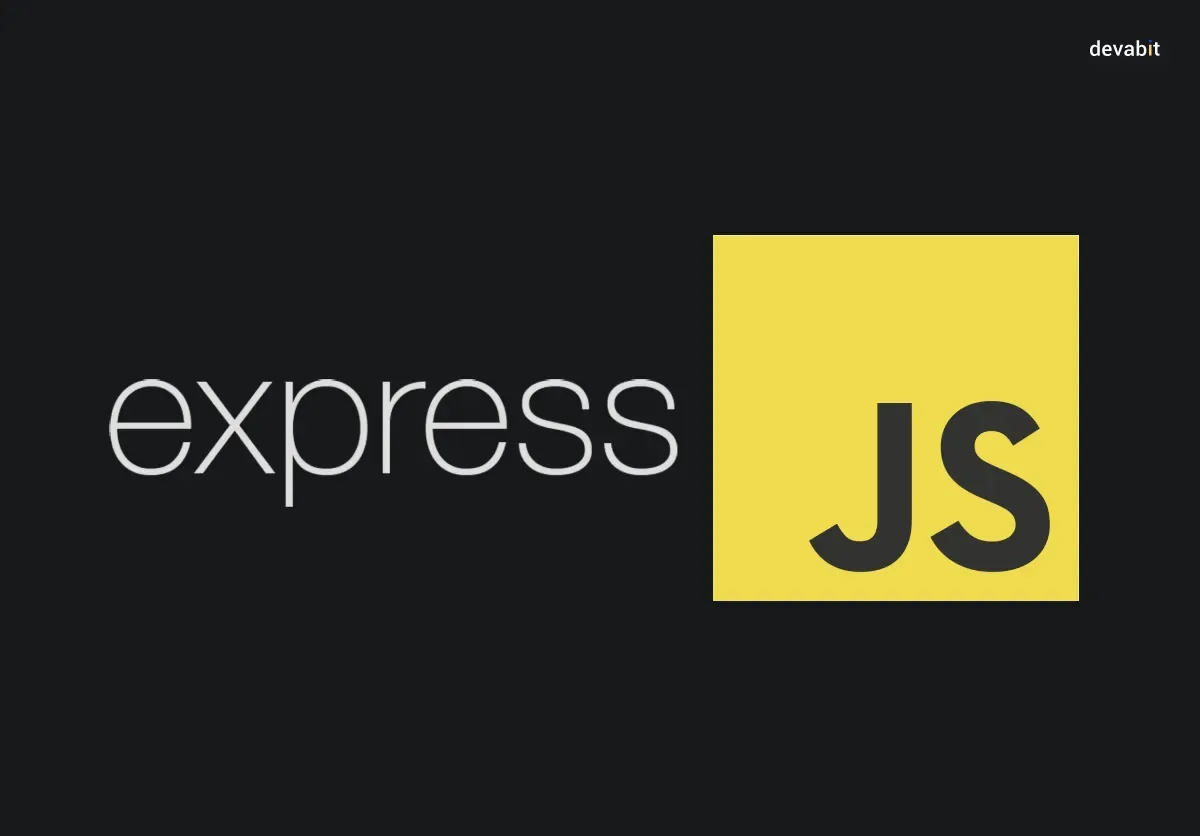
Frameworks for Node.js API Development: Hapi.js
Hapi.js is one of the most powerful and feature-rich frameworks for Node.js. Being a perfect option for building web applications as well as, APIs, it is also known for its robust plugin system, which allows developers to extend and customize its functionality. In contrast to other frameworks for Node.js, Hapi.js emphasizes configuration over code, making it suitable for large-scale projects with complex requirements.
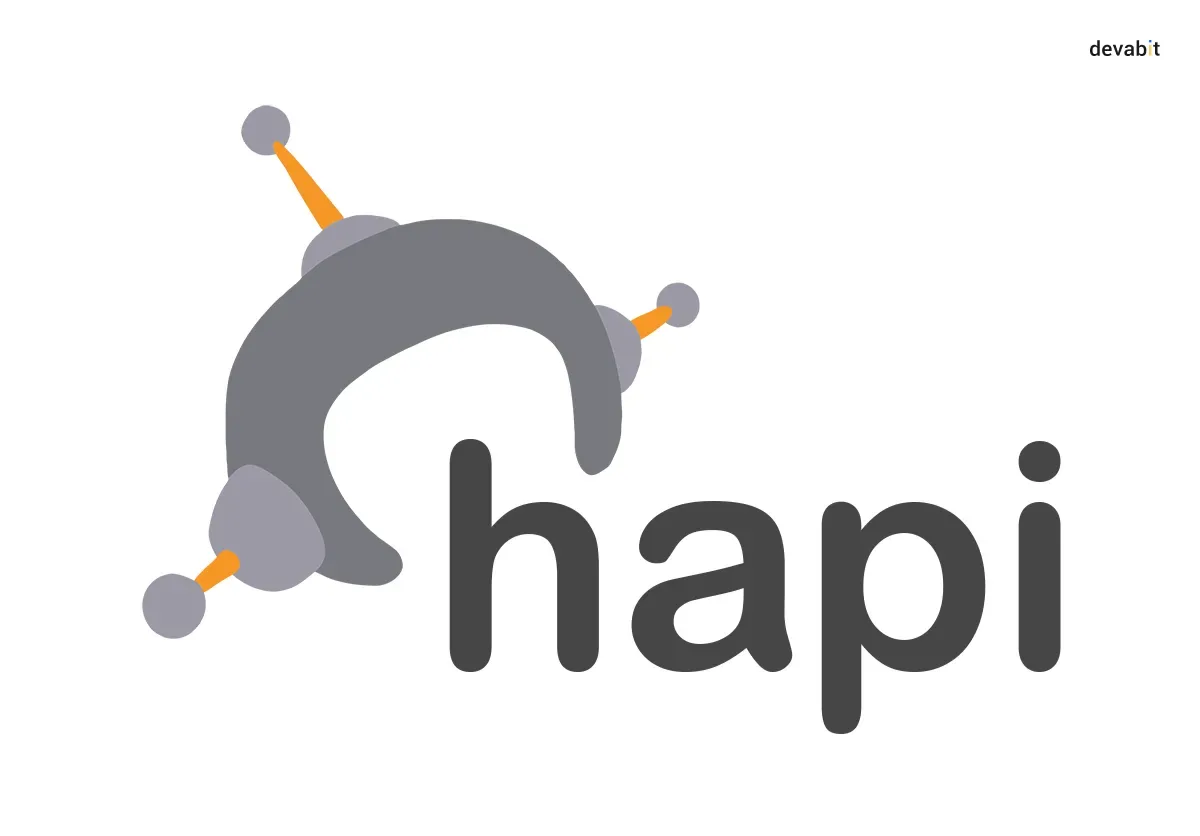
Frameworks for Node.js API Development: LoopBack
LoopBack is a popular framework for building and connecting APIs with backend data sources. It provides built-in support for creating RESTful APIs, connecting to databases, and integrating with third-party services. Yet, how does LoopBack stand out among other frameworks for Node.js? Well, it offers a visual API designer and command-line tools for rapid development and prototyping.
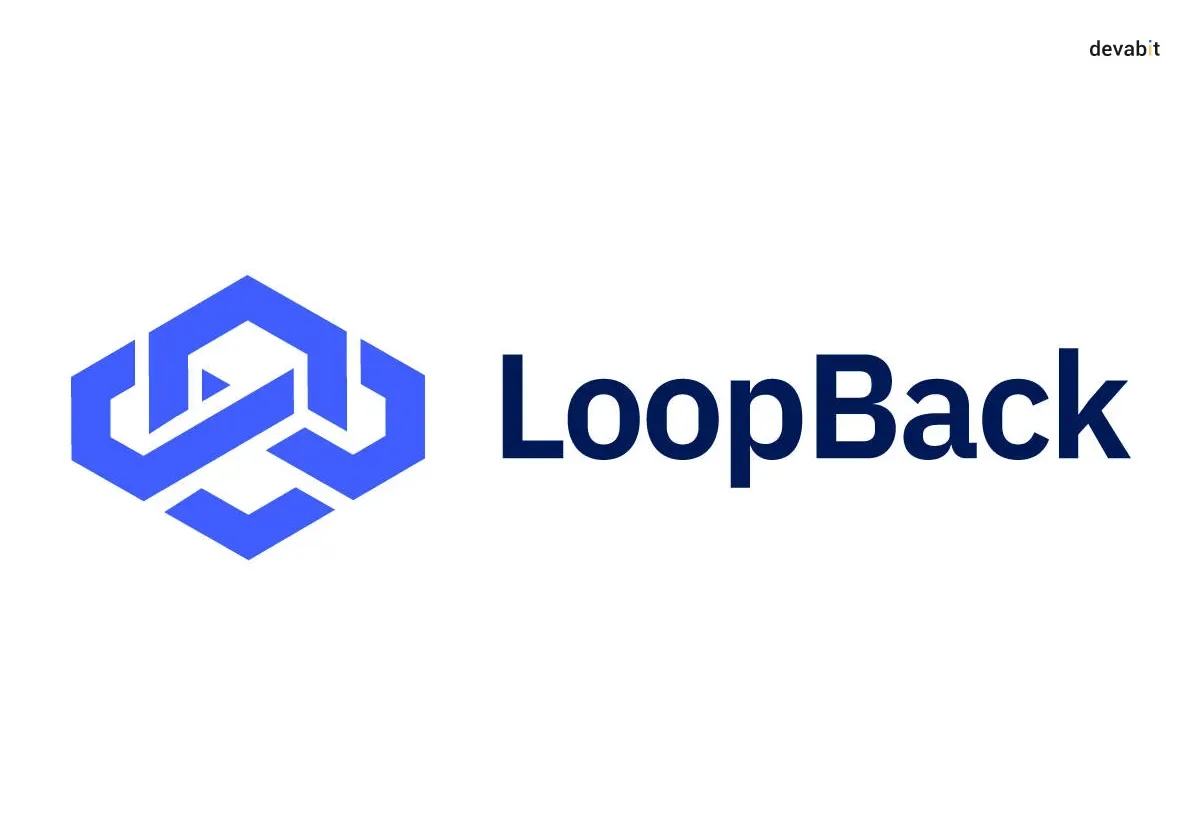
Frameworks for Node.js API Development: Restify
Restify is a specialized framework for building RESTful APIs with Node.js. It is designed to be fast, lightweight, and optimized for handling HTTP requests. One of the most widespread frameworks for Node.js, Restify is famous for its robust functionality, like request parsing, content negotiation, and response formatting out of the box. This makes it well-suited for building APIs with strict performance requirements.
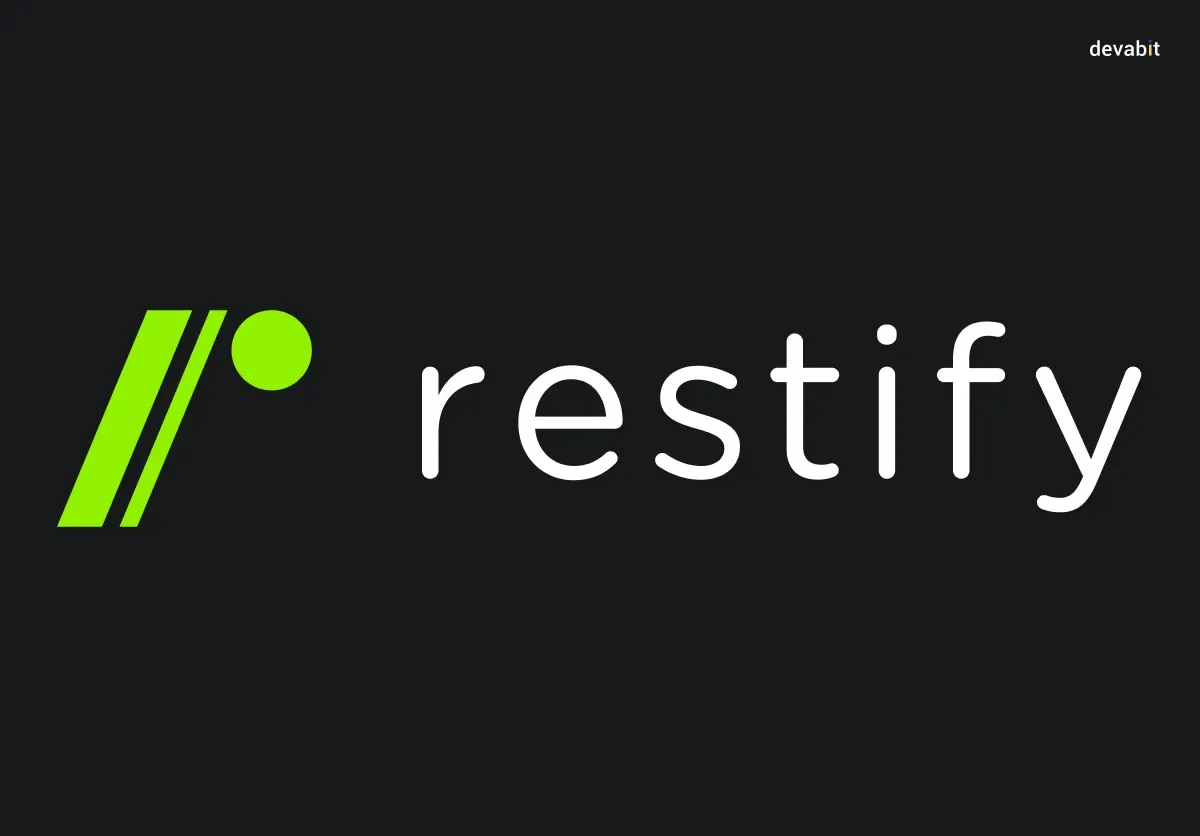
Frameworks for Node.js API Development: AdonisJS
AdonisJS refers to the cohort of full-featured MVC frameworks for Node.js. Inspired by Laravel, it offers a rich set of tools and conventions for building scalable and maintainable APIs. AdonisJS includes features like ORM, authentication, and validation. Therefore, it can be a great tool for building complex APIs.
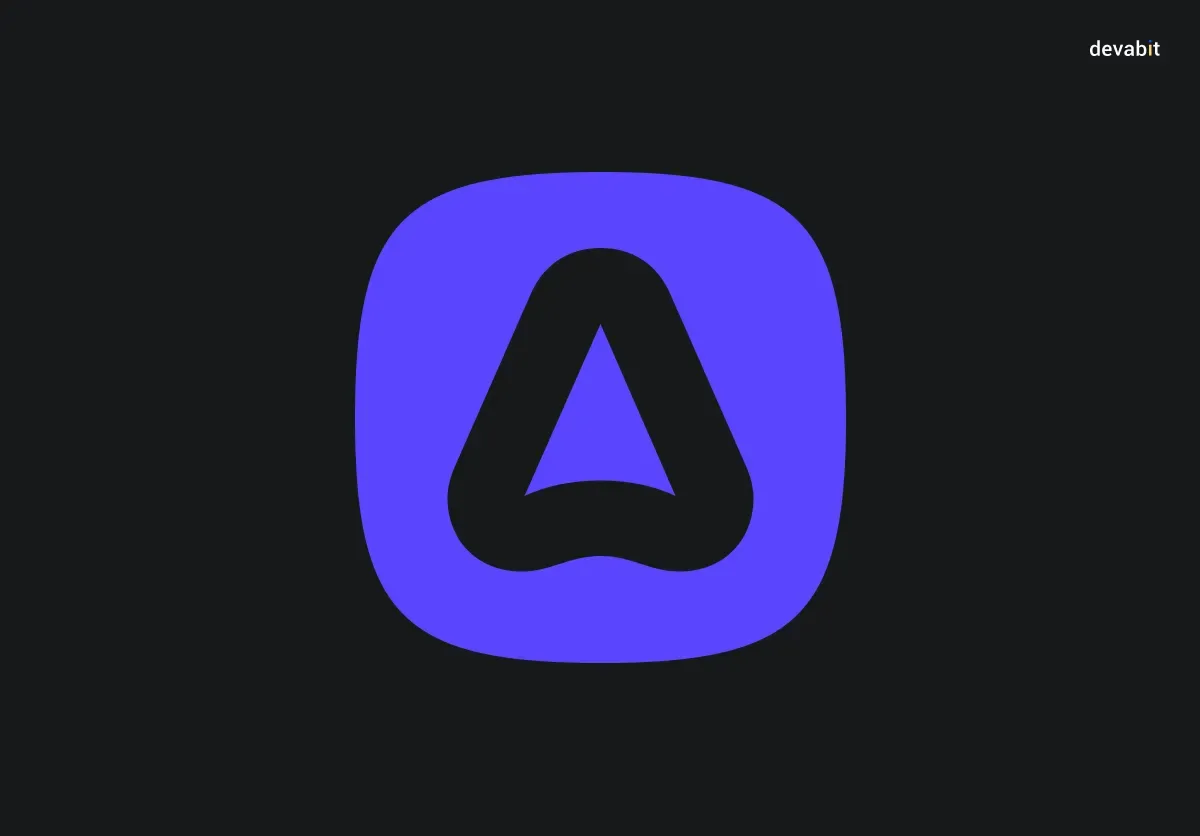
Frameworks for Node.js play a crucial role in simplifying and accelerating the development of APIs. Whether you prioritize simplicity, performance, or scalability, there is a framework out there to meet your needs. In the rapidly evolving landscape of web development, the choice of framework ultimately depends on your project requirements, team expertise, and long-term goals. By exploring the diverse ecosystem of frameworks for Node.js, developers can empower themselves to build robust, efficient, and scalable APIs that meet the demands of modern web applications.

Final Verdict on Node.js Frameworks, Trends, and Predictions
In today's article, we have covered a lot of ground — from the nuts and bolts of popular Node.js frameworks like Express.js and Socket.io to the vibrant developer community and emerging trends that make Node.js the top choice for modern web developers.
Summing up, the versatile nature of Node.js frameworks offers an expansive horizon of possibilities, from crafting small, efficient services to powering large-scale, real-time applications. The ecosystem is as vibrant as it is diverse, making it a thrilling time to hire Node.js developers for your next market-leading project. So keep exploring, and do not forget to share your findings along the way.
As you embark on your journey through the fascinating world of Node.js frameworks, it is crucial to have the right partners by your side. At devabit, we offer a skilled team of Node.js developers well-versed in the nuances of popular frameworks like Express.js and Socket.io, as well as the emerging trends shaping the Node.js ecosystem.
We understand that every project has its unique challenges and requirements. Whether you are looking to build a real-time chat application, a robust RESTful API, or an enterprise-level solution that leverages the best of microservices and serverless architecture, we have got you covered. Just drop us a line below, and let us get started together.
Recent Publications
Don't miss out! Click here to stay in touch.
Discover More of Useful Links

Relevant Articles View all categories
View all categories CONNECT WITH US WE’RE READY
TO TALK OPPORTUNITIES
THANK YOU! WE RECEIVED YOUR MESSAGE.
Sorry
something went wrong



